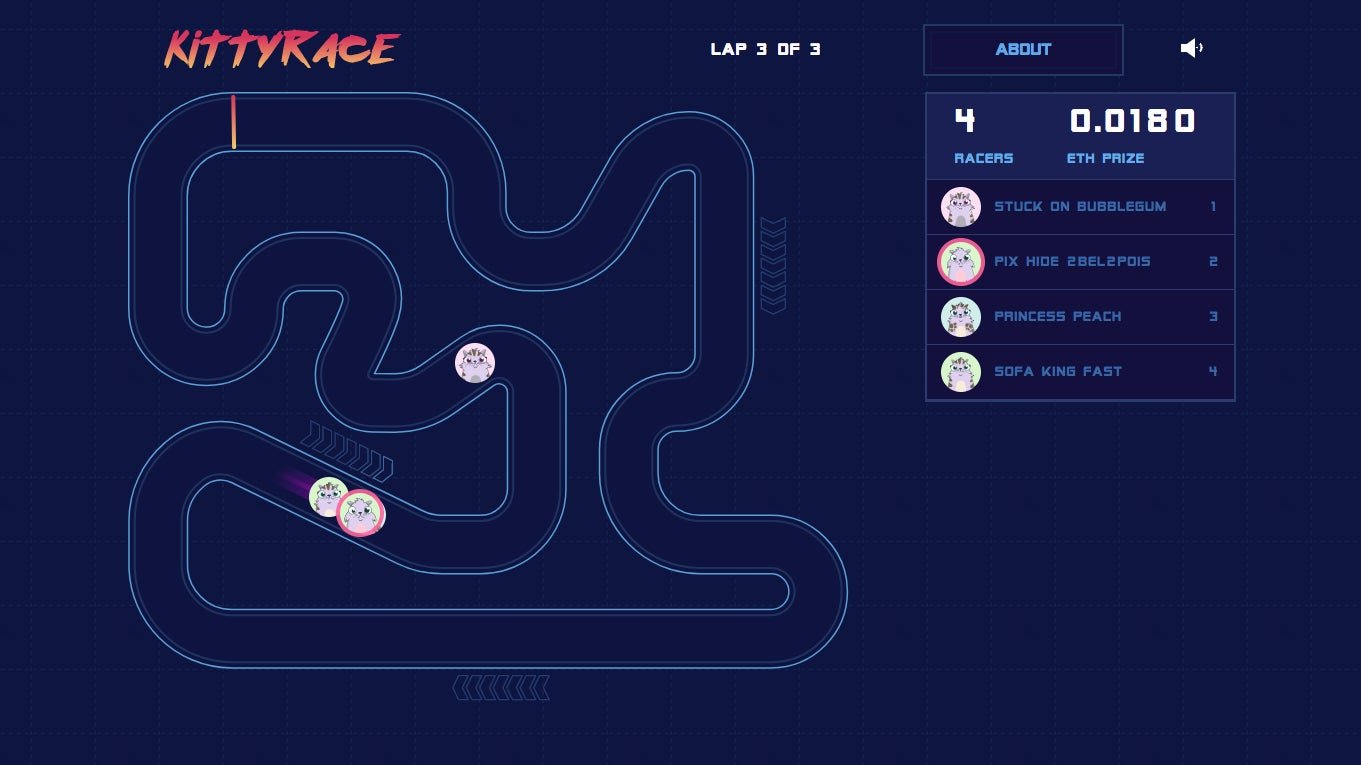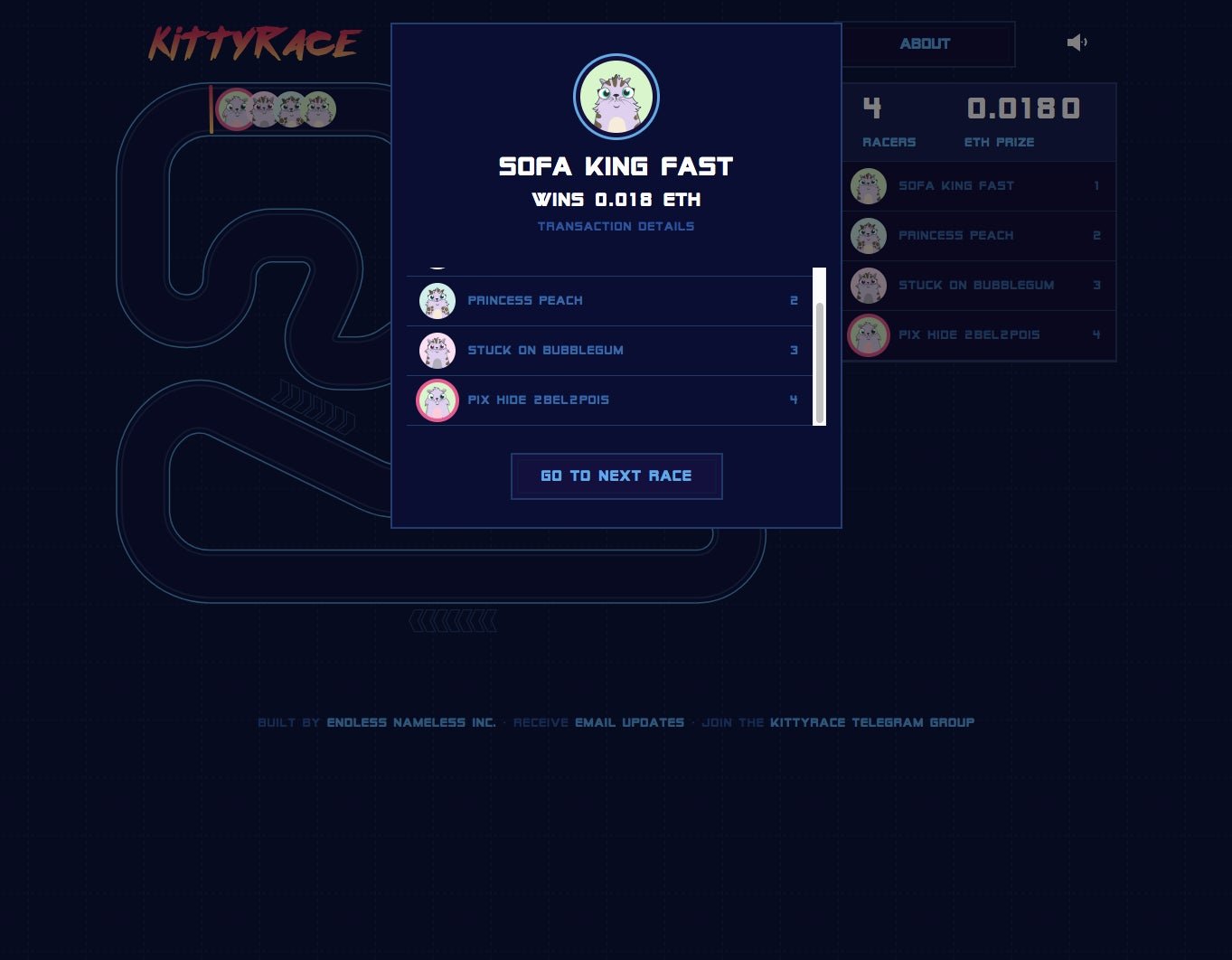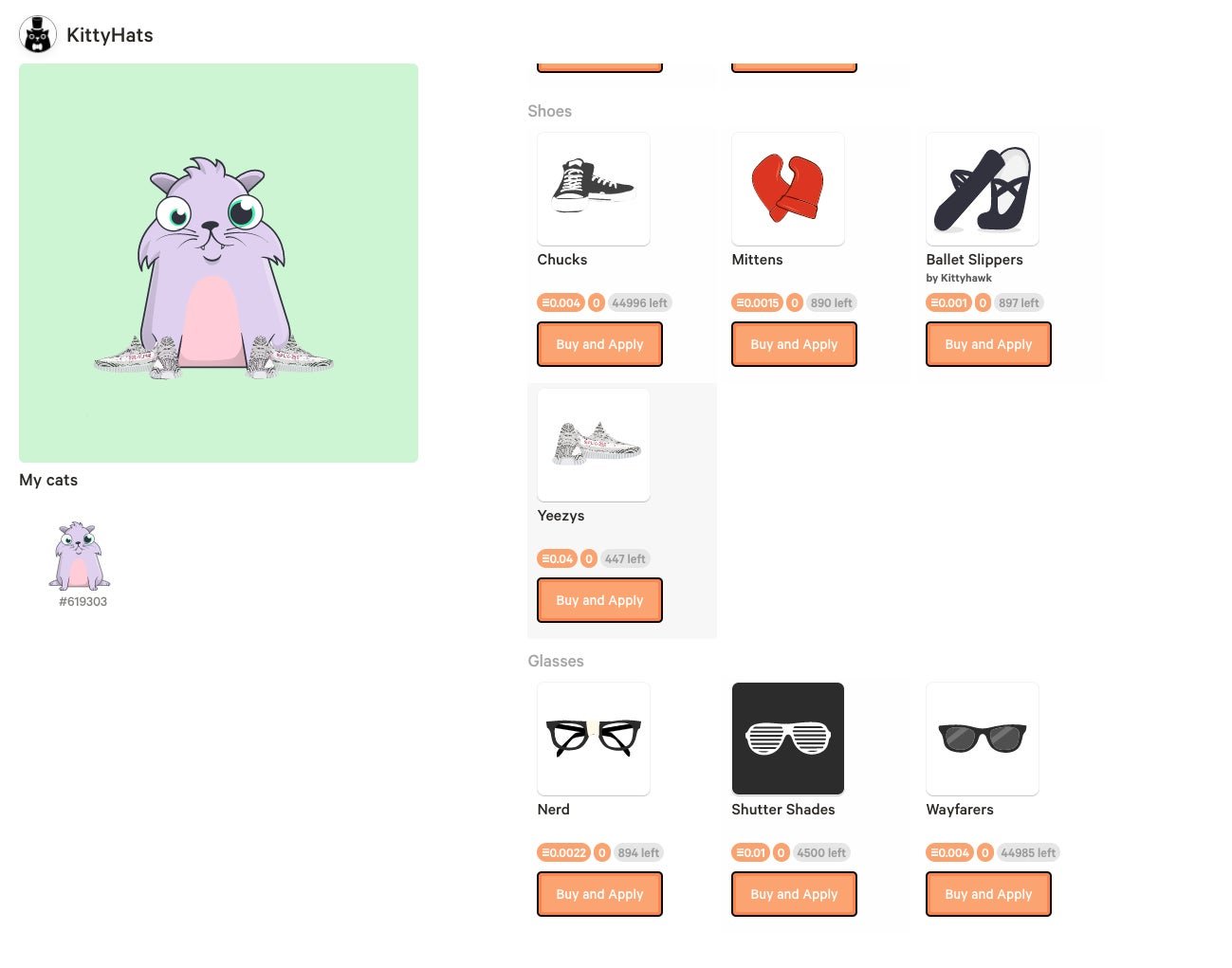CryptoKitties are racing for prize money on the ethereum blockchain
The CrypoKitties game took the ethereum world by storm last December, as eager players bought and sold the cutesy virtual creatures for tens of thousands of dollars. The cartoon cats were really just representations of digital tokens on the ethereum blockchain, meaning they could exist independently of their creators, the Canadian studio Axiom Zen.


The CrypoKitties game took the ethereum world by storm last December, as eager players bought and sold the cutesy virtual creatures for tens of thousands of dollars. The cartoon cats were really just representations of digital tokens on the ethereum blockchain, meaning they could exist independently of their creators, the Canadian studio Axiom Zen.
The fact that CryptoKitties exist independently on a blockchain also means that any developer is free to write programs for them. That’s just what one firm has done with a game called KittyRace.
Holders of CryptoKitties enter their pets to race against others, set against a thumping soundtrack of TRON-esque electronic music. Competitors must pay an entry fee—in ether, naturally—to participate. The race is won by the cat that possesses certain desirable traits (“cattributes”), the timing of its entry to the race course, and an element of chance. The winning cat takes the pot of entry fees as a reward after some is deducted for ethereum’s miners, who supply the computational resources to run the app.
The remarkable thing about KittyRace is that its creators have nothing to do with Axiom Zen, apart from being CryptoKitties fans. No royalties or licensing fees are paid, and no partnerships were struck. “We didn’t speak with Axiom Zen prior to building KittyRace,” says Charley Hine, who runs KittyRace’s maker, a firm called Endless Nameless, with Eugene Otto. This sort of “permissionless” development, in crypto parlance, underlines the benefits of blockchain-based assets. With no central authority controlling property rights, developers are free to create new activities for CryptoKitty owners.

KittyRace is currently played on a web browser; players must install an ethereum wallet, such as MetaMask, to access it. Go to KittyRace’s website without MetaMask, and you won’t see the racetrack. Install the wallet, which is a Chrome browser extension, and the track materializes. KittyRace is what’s known as a “DApp,” short for “decentralized app.” It runs on the collective computing power of the ethereum network.
No one’s buying a Lambo with their KittyRace earnings just yet—the total amount paid for races is just under $8,000 in the 10 days or so since its launch. But players are already investing in their CryptoKitties by breeding them to enhance their performance in races.
In the KittyRace Telegram chat group, players are vocal about how the game should be developed—and about the state of the wider CryptoKitties market. “The wingtips market is in a bubble right now from racers,” opined one user, who goes by Rodney Therriault, on the prices of cats with the “wingtip” attribute. Another user, Taco Troia, pleaded with KittyRace’s makers not to change the formula to determine winners. “I am more worried about the players I have sold racers to, and my cred. Transparency is going to be key,” he wrote.
KittyRace’s maker doesn’t make any money from the game, and has no plans to. The developers call it an “experiment,” and with good reason. Take away the cutesy graphics and the feline puns, and you have a sort of decentralized poker game. The legalities of such a game are murky at best, and KittyRace’s maker isn’t taking any chances. “A betting game between strangers on the internet without a centralized party in the flow of funds wasn’t really possible before ethereum—it’s uncharted territory,” Hine says, adding that his firm will wait for clearer rules on decentralized betting before trying to profit from such mechanics.
KittyRace isn’t the only decentralized app for CryptoKitties going around. Something called KittyHats, by a firm called Salina Labs, lets kitty owners outfit their digital pets with headgear and Ray-Bans, complement them with pieces of digital art, or have their feet adorned with Yeezy sneakers.
KittyRace and KittyHats are examples of how crypto-collectibles can accrue value over time as developers dream up new uses for them. CryptoKitty owners don’t have to fear that their cats’ value will be diluted by the game’s maker, since each cat is unique, and developers like Hine can launch new games with no bureaucracy or legal wrangling. As Nick Grossman of Union Square Ventures, an investor in CryptoKitties, writes, the digital feline ecosystem offers a glimpse into a “world where digital assets that are created in one place can be freely integrated into other places.”

CryptoKitties itself has been recently spun out of Axiom Zen, raising $12 million in funding from big-time backers like Andreessen Horowitz and Union Square Ventures. It also has expanded into China, where it hopes to charm Chinese players with cats dressed in traditional lion-dance costumes, and designed with dragon motifs. But transaction volumes have been flat in recent months, according to data provider DAppBoard.
Still, independent developers like Hine will be rooting for CryptoKitties’ success, despite having no formal relationship with the firm. “We were happy to integrate their product without asking permission—and hope they’re happy we did so,” he says.